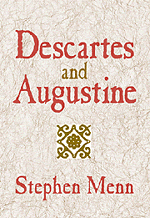7 - Theodicy and method
Published online by Cambridge University Press: 04 August 2010
Summary
The doctrine of judgment
Interpreting the fourth Meditation
Already in the first Meditation Descartes had proposed to guarantee the truth of our judgments by inferring that a good God would not deceive his creatures. Descartes defers this plan of argument until he can prove that God is our creator, and show in what way he is good: until we know this we can only guess blindly what kinds of error God's goodness would or would not exclude. By the end of the third Meditation, however, Descartes has argued that we do proceed from a perfect creator, and that his perfection is such as to contradict his being a deceiver. By eliminating the scenarios of a powerless or malicious creator, which would make human knowledge impossible, Descartes is free to develop the remaining option, a good and perfect God, which makes knowledge at least a possibility. So in the fourth Meditation Descartes confronts the question he had raised in the first: what is it legitimate to infer from God's goodness, since we are sometimes deceived? Evidently we cannot exclude every type of error: since error exists and since God is non-deceiving, there must be some type of error that does not proceed from God, even though God permits it to happen.
- Type
- Chapter
- Information
- Descartes and Augustine , pp. 301 - 336Publisher: Cambridge University PressPrint publication year: 1998



